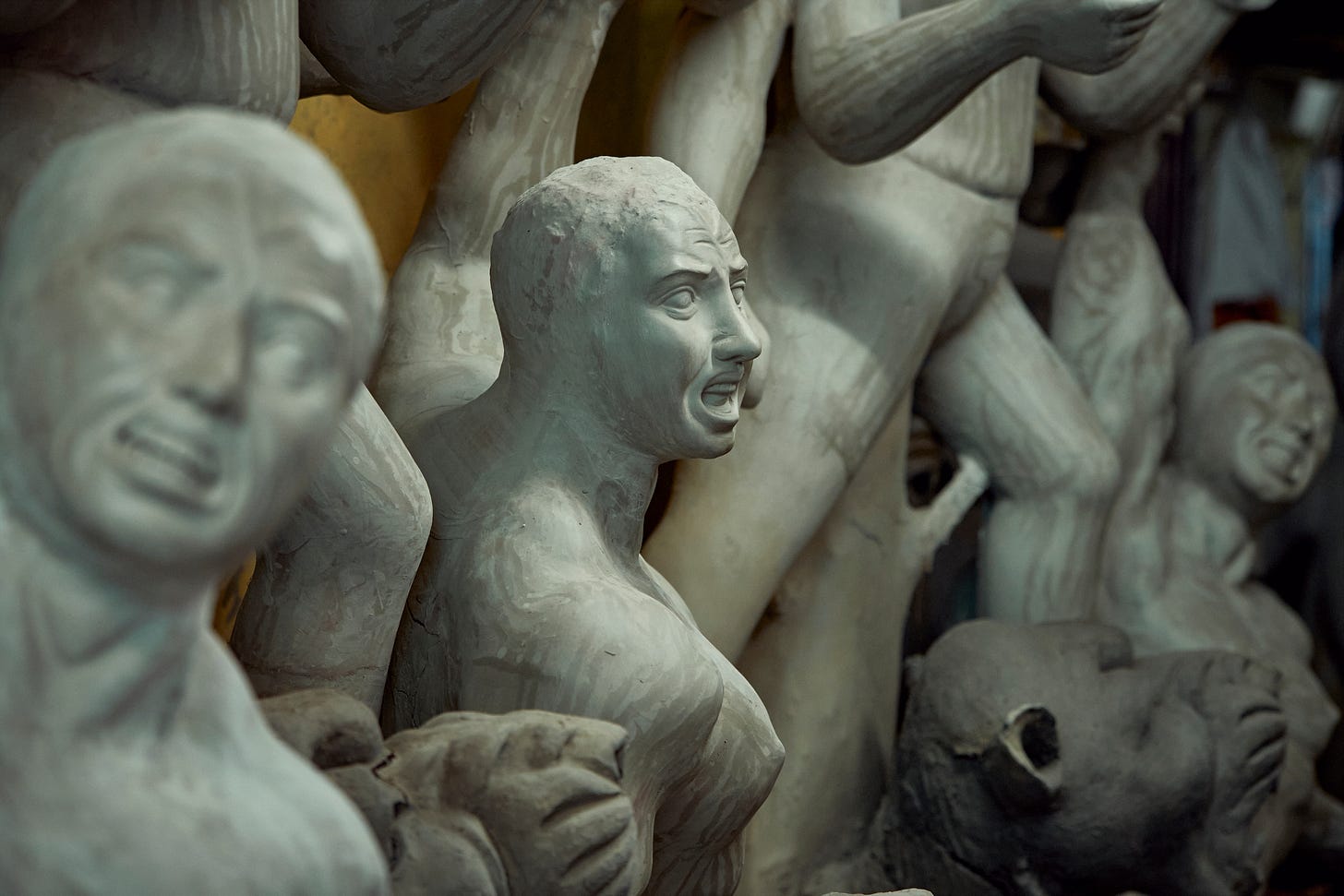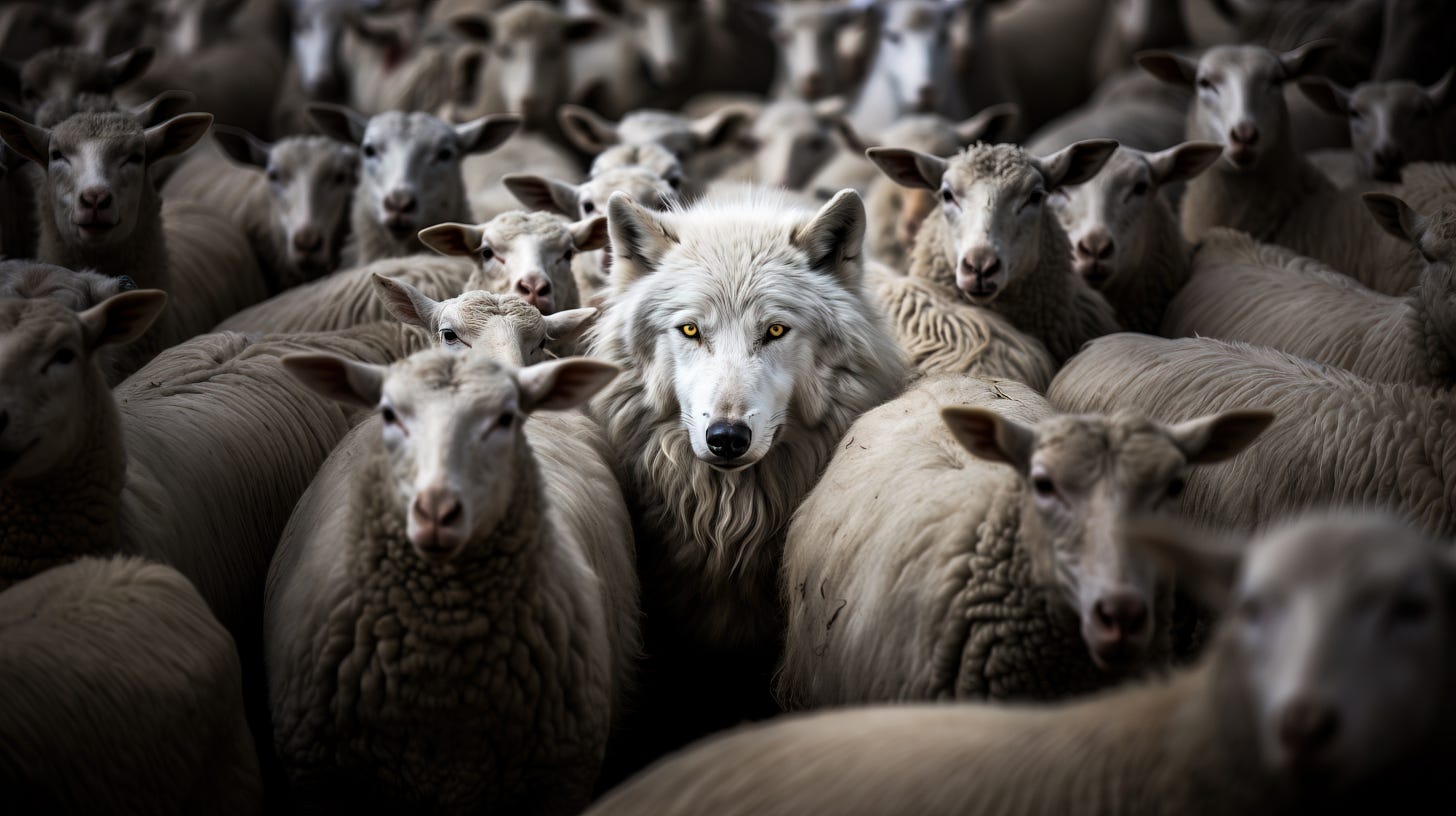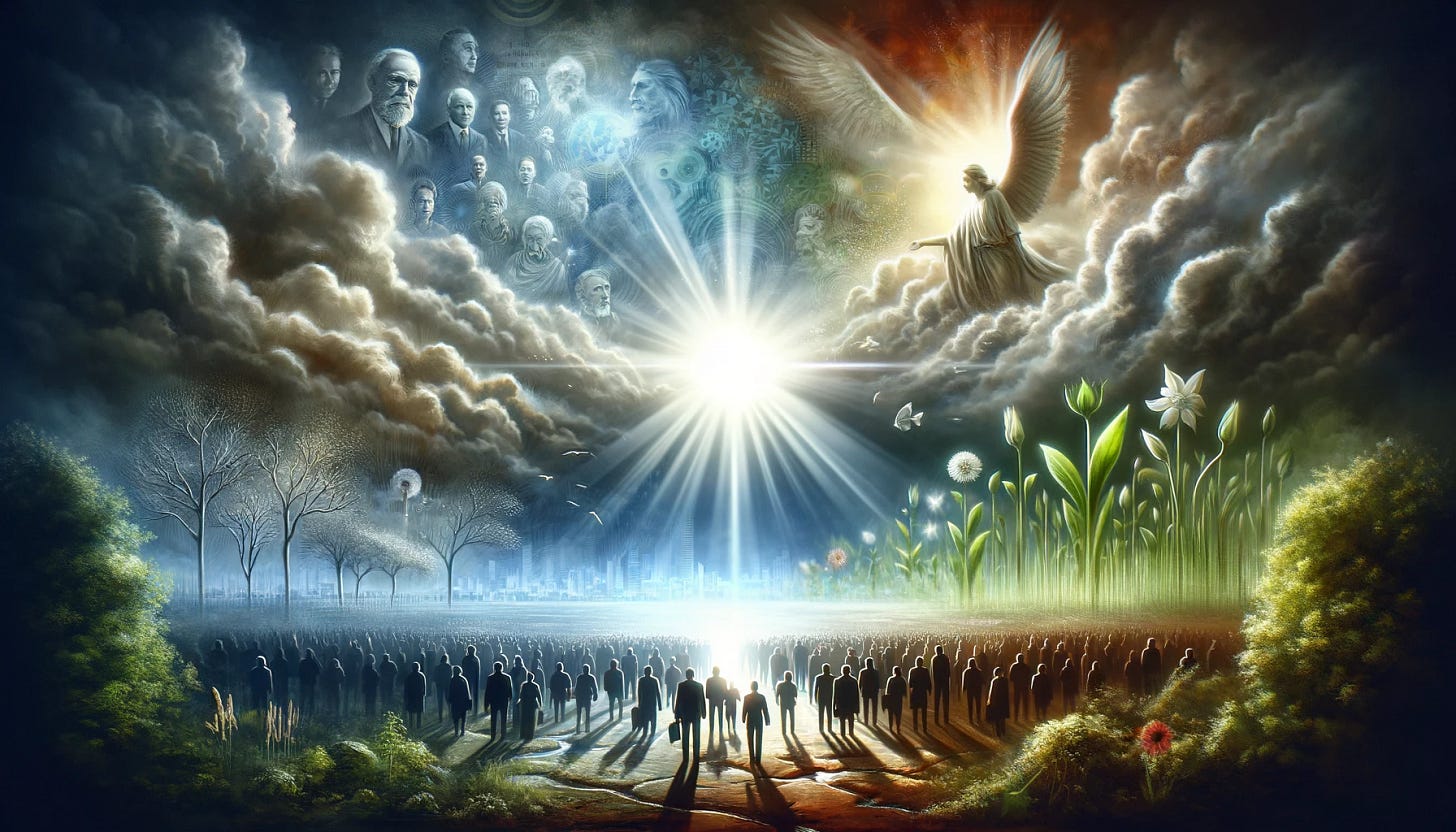
The battle between good and evil is a timeless saga that has permeated human consciousness since the dawn of civilization. This eternal struggle is not just a theme for epic tales and moral stories; it resonates deeply in our daily lives, influencing our decisions, actions, and beliefs. In today's world, where the lines between right and wrong can often seem blurred, understanding this conflict is more relevant than ever.
Recent events over the past decade have made this struggle even more apparent to me, reaching what feels like a critical peak. The stark contrasts and clashes between moral perspectives have become increasingly evident, highlighting the ongoing relevance of this age-old battle. The recent attempt to assassinate former President Donald J. Trump serves as a poignant example of how this conflict manifests in modern times, illustrating the extreme measures that can arise from the depths of ideological and moral disputes. It also shows how narratives can be manipulated, distorting reality and misguiding people in the process.
Once the moral compass is lost, things can quickly spiral out of control. People today are more divided and pushed to the edges than ever before in our lifetime.
In light of these events, I am fully persuaded that this battle is more obvious than ever in my lifetime. In this article, I will explore the manifestations of this battle in various religious and spiritual contexts, the deceptive nature of evil, and practical ways to overcome evil. By examining these dimensions, I aim to shed light on the profound and pervasive influence of this eternal struggle in our contemporary world.
The Spiritual Battle in Different Religions

In Christianity, the concept of spiritual warfare is a significant aspect of the faith. Believers are taught that they are in a constant battle against the forces of evil, led by a hierarchical structure of spiritual beings. This struggle is not against flesh and blood but against spiritual entities. Ephesians 6:12 states, "For we wrestle not against flesh and blood, but against principalities, against powers, against the rulers of the darkness of this world, against spiritual wickedness in high places." Christians believe that faith in God and adherence to His teachings provide protection and strength in this battle.
However, faith alone is not enough. Personal effort is required, as the real battle takes place within.
This internal struggle involves confronting the imperfect nature of the human psyche, including a lack of consciousness, lack of control, and our thoughts and feelings shaped by past experiences. This is where the real battle occurs, within ourselves, every moment of our lives.

Islam also emphasizes the struggle between good and evil, known as jihad. This term, often misunderstood and usually identified with ‘extremists,’ primarily refers to the inner struggle to overcome sin and lead a righteous life. The greater jihad is the internal, personal battle against sin, while the lesser jihad involves defending the faith and ensuring justice. The Quran speaks of this battle within oneself and the importance of striving to do good and resist evil influences. Surah Al-Baqarah (2:286) highlights the need for divine guidance and support in this endeavour, stating, "Allah does not burden a soul beyond that it can bear...Our Lord, do not impose blame upon us if we forget or make a mistake. Our Lord, and lay not upon us a burden like that which You laid upon those before us." This verse underscores the compassionate nature of divine guidance, reassuring believers that their sincere efforts in combating inner evil will be supported by God's mercy.
In Hinduism, the eternal battle between dharma (righteousness) and adharma (unrighteousness) is central. This conflict is vividly depicted in the Bhagavad Gita through a dialogue between Prince Arjuna and the God Krishna on the battlefield of Kurukshetra.
When Arjuna faces moral confusion about fighting his kin, Krishna advises him to fulfil his dharma as a warrior. This battle is not just physical but also moral and spiritual, emphasizing the need to uphold righteousness and justice. Krishna teaches that everyone has their own dharma essential for maintaining cosmic order, and stresses acting selflessly without attachment to outcomes.
Krishna introduces bhakti (devotion) as a way to transcend the ego and align with the divine will. Through devotion and selfless action, individuals can overcome the illusions leading to adharma, thus contributing to the restoration of harmony and balance in the world.
Buddhism focuses on the internal battle against defilements of the mind, such as greed, hatred, and delusion, which are essential to overcome in the pursuit of enlightenment. This process involves cultivating virtues like compassion, loving-kindness, and wisdom.
The Dhammapada, a collection of Buddha's sayings, offers practical guidance on this journey. It emphasizes ethical living and mental discipline through right speech, right action, and right livelihood, which are part of the Noble Eightfold Path.
Greed is countered by detachment and contentment, hatred by loving-kindness (metta) and compassion (karuna), and delusion by wisdom (panna) gained through meditation and mindfulness.
Practices like mindfulness of breathing (anapanasati) and insight meditation (vipassana) help develop awareness and control over thoughts and emotions.
In many indigenous and spiritual traditions, the battle between good and evil is often symbolized through nature and spiritual entities. Native American spirituality, for example, sees this struggle reflected in the harmony and disharmony of natural elements and the influence of spiritual beings.
The Deceptive Nature of Evil

Evil often disguises itself as good, making it difficult to discern its true nature. Throughout history, there have been numerous examples of this deception. Figures like Adolf Hitler initially presented themselves as saviours or reformers but ultimately revealed their malevolent intentions. Such historical events remind us of the cunning and deceptive nature of evil.
In contemporary society, political and social movements sometimes hide harmful agendas behind seemingly benevolent goals. This is why it is crucial to remain vigilant and critically assess the true intentions behind such movements.
Cognitive biases and societal influences can further blur the lines between good and evil. Confirmation bias, for instance, can lead individuals to support harmful actions or ideologies because they align with pre-existing beliefs.
Carl Jung extensively explored the concept of evil, particularly in how it can manifest within the human psyche. Jung introduced the idea of the "shadow," the unconscious part of our personality that contains our repressed weaknesses, desires, and instincts.
He believed that ignoring or denying the shadow could lead to it gaining power and manifesting in destructive ways. According to Jung, evil often emerges from the unrecognized and unintegrated parts of our psyche, leading individuals to project their inner darkness onto others.
Jung also discussed the phenomenon of "psychological projection," where individuals attribute their own undesirable traits or impulses to others.
This can lead to the demonization of others while remaining blind to one's own faults.
In this context, the line between good and evil becomes obscured, as individuals fail to recognize the evil within themselves.

Jung's concept of the "collective unconscious" further explains how certain archetypes, including the shadow, are shared among all humans. These archetypes influence our behaviour and perceptions, often subconsciously. The collective shadow can manifest in society as large-scale conflicts, prejudice, and mass hysteria, where evil is only externalized and fought against without addressing the internal psychological roots.
In light of Jung's theories, it becomes evident that the battle between good and evil is not only an external struggle but also an internal one. To combat evil effectively, individuals must confront and integrate their own shadow aspects, fostering self-awareness and personal growth.
This internal work helps prevent the projection of one's own darkness onto others and reduces the susceptibility to deception by those who disguise evil as good.
By understanding the psychological mechanisms behind the disguise of evil, as highlighted by Jung's work, we can better navigate the complexities of moral discernment. This awareness empowers individuals to challenge their cognitive biases, critically evaluate societal influences, and recognize the subtle ways in which evil can infiltrate both personal and collective consciousness.
Insights from the movie Exorcist's Pope
Recently, I watched the movie "The Pope’s Exorcist," which was well done and led me to read the biography of Gabriele Amorth, the real person behind the story. Amorth, known as the Exorcist's Pope, famously stated,
"The best trick of the devil is to persuade you that he doesn't exist."
This insight highlights the subtlety and cunning nature of evil, which often operates under the radar, influencing thoughts and actions without being detected.
This statement underscores the importance of recognizing the presence and influence of evil in our lives. Acknowledging its existence is the first step in combating it. Many individuals have shared experiences where they were deceived by evil posing as good. Documented cases of cults or manipulative relationships often reveal how easily one can be led astray.
These instances show how evil can cloak itself in a guise of benevolence, making it difficult to discern its true nature until significant harm has been done.
In his book, Amorth states that the extreme presentations of evil seen in movies are very rare. What is far more frequent is the subtle way that evil infiltrates our lives. This infiltration can come in the form of everyday temptations, negative thoughts, past resentments, or insidious influences that gradually lead individuals away from their moral and ethical foundations. It is not random that today we see an attack on morality and ethics, further emphasizing the need for vigilance.
To remain vigilant, it is essential to cultivate a discerning mind and a strong moral compass. Regular self-reflection and seeking counsel from trusted sources can help in recognizing and resisting evil influences. Engaging in practices such as prayer, meditation, and mindfulness can strengthen one's inner defences against these subtle attacks. Building a supportive community of like-minded individuals can also provide a network of encouragement and accountability, helping to maintain vigilance against the pervasive nature of evil.
Overcoming Evil

Combating evil requires a combination of spiritual practices, community support, and continuous education. Engaging in prayer and meditation strengthens the spirit and mind. Different religions offer various techniques to connect with the divine and seek guidance and protection.
Surrounding oneself with supportive and like-minded individuals creates a strong network that can provide encouragement and accountability in the face of challenges. Continuous learning and awareness are vital in recognizing and resisting evil influences. Staying informed about current events and understanding psychological tactics used by malevolent forces can empower individuals to make righteous choices.
However, what is most crucial is maintaining a strong moral compass, the ability to admit our flaws, control our emotions, and the hard work of understanding and observing the darkness within ourselves.
Evil cannot affect you unless it finds something to connect with inside. We all have these anchors of vulnerability. Therefore, taking responsibility, admitting faults, treating others as we would like to be treated, and diligently contributing to our community are all necessary elements of developing a shield against evil. By becoming examples for others, we reinforce these protective measures and develop a culture of integrity and resilience.
Conclusion

The battle between good and evil is a complex and multifaceted struggle that requires vigilance, discernment, and spiritual strength. By understanding this conflict through various religious and spiritual lenses, recognizing the deceptive nature of evil, and adopting practical measures to combat it, we can strive to nurture the good within ourselves and our communities.
One crucial aspect to remember is that this battle starts within. If we overlook this internal struggle, it can easily turn into a witch hunt, with destructive consequences. Recognizing and addressing our own flaws and inner darkness is essential to effectively combating external evil without causing harm to others.



Dr Syrigos,
I would like to applaud your explanation of the religious and Jungian insights you mention in the human perception of evil. However I believe that you have fallen into and perpetuate the mistaken notion of "human exceptionalism".
Each of the examples of "evil" and "the demons" that humanity wrestles with are humanities own constructs. With time encompassing varying perspectives and interpretations, there is no difference between good (for whom) and evil (to whom), except perspective. Human perspective specifically.
As integral and natural expressions of Earth's evolutionary history, humans and human reactions are as natural and benign as any other phenomenon that happens in or on our world. That immediately questions whether humanity, exclusively according to some religions has an otherworldly "spiritual" component. Many wish we do, I think not.
Does one Ant colony attacking another an evil act? Does one Deer eating better browse, denying another an evil act? Does one human tribe pursuing resources more than their immediate need create a dichotomy of good and evil?
Our perspective needs adjusting. Good-evil is a spectrum disorder like intelligence (first clarify the definition of intelligent) not, except through a very narrow perspective, opposing attributes. I'd assert that the missing and necessary quality is equilibrium as demonstrated in virtually any natural process. Given time, equilibrium or harmony as professed by the Budda accounts for deficient human perspective.
We make this stuff up. Define ourselves by our limited insight and ascribe similar attributes to what we actually do and don't understand. Again, we understand little which is why we create fantastical story lines to explain our selves to ourselves.
Good and evil are not a battleground they are precepts of our own behaviors intermingled by perspective. Ethically everything has the same fundamental "right" to exist, until doesn't. Humanity creates the comparison and creates concepts of good or evil. It recognizes equilibrium/harmony as the sea-saw of existence.